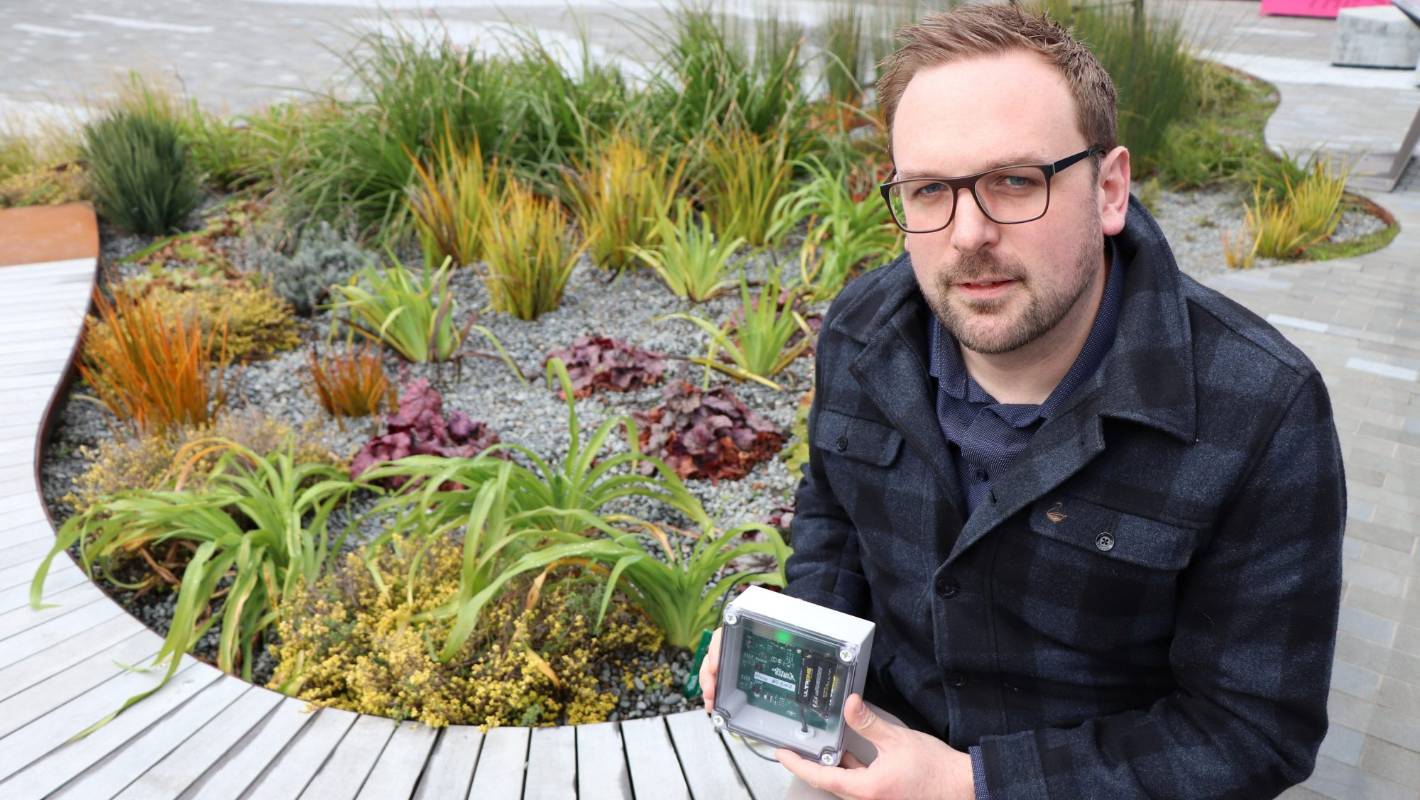Students across New Zealand will be keeping tabs on their school gardens without getting their hands dirty, thanks to a new technology initiative.
The Electric Garden remotely monitors the soil and air conditions of a garden, sending data to the cloud where it can be viewed from any computer, cell phone or tablet.
The Digital Future Aotearoa Trust (formerly Code Club Aotearoa Trust) is launching its technology over the school holidays, deploying the first devices to schools in North Otago and South Canterbury.

Electric Garden project manager Matt Scott said they wanted to show students how to use data to make real-life decisions. In this case, which germinated seedlings will produce the biggest pumpkins.
Students can normally monitor garden conditions from their classroom, but during the summer holidays the Electric Garden can be programmed to send alerts to a device whenever the pumpkins need watering.
“We have already been involved in robotics and coding initiatives, so can really see the opportunities that are available through a program like this,” Brown said.
“The kids are really engaged with anything digital and although they don’t know a whole lot about what to expect they are all looking forward to it.”
Scott said the aim was to align the use of the Electric Garden with the new digital technologies part of the primary school curriculum, which comes into effect in 2020.
“The whole idea of the Electric Garden is that it’s an out-of-the-courier bag deployable, so teachers can pull it out … put the batteries in, and it works,” Scott said.
The first prototype will initially be offered to 75 schools, before the model is improved and then made available across New Zealand.
Along with the Electric Garden hardware, Digital Future also provides schools with six hours of training and eight weeks of learning resources.
With four weeks planned in term four and the same in term one, it is the perfect time for a pumpkin growing competition.
Scott said the project, funded by Microsoft Philanthropy, the Spark Foundation and Verizon Connect, is primarily aimed at small, rural communities that often miss out on funds given to centres with a big population.

